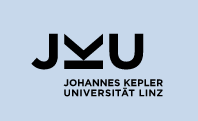
|

|
Symbolic Summation and Integration (326.079)
Winter semester 2023/2024
Carsten Schneider
Here we will start with the underlying computer algebra methods for sums initiated by Michael Karr that have been improved and generalized further to a general difference ring theory for big classes of multi-sums in terms of indefinite nested sums and products. The underlying methods enable one to solve the telescoping problem for indefinite summation, parametericed telescoping for finding linear recurrences or differential equations of sums depending on an extra parameter, or solving linear recurrences in terms of certain classes of special functions. The interaction of all these algorithms will lead to a general framework to tackle challenging multi-sums that arise in various disciplines of technical and natural sciences that have been indicated above.
In the second part of the lecture we will present the continuous analogue of
symbolic summation that has been initiated by Risch's algorithm.
This algrorithm decides if there is a solution in terms of elementary functions
of the inverse problem of differentiation (also called anti-differentiation,
the continuous version of telescoping). In particular, we will elaborate the
similarities but also the differences of the available integration methods
in comparison to the existing symbolic summation techniques.
Here we will consider also the parameterized anti-differentiation problem to find linear differential equations or recurrences of integrals depending on an extra parameter
and solving linear differential equations in terms of special functions.
Summarizing, this lectures aims at introducing the crucial algorithms for
symbolic summation and integration and providing the basic toolboxes to tackle
non-trivial problems that arise in technical and natural sciences.
Examples in Mathematica complementing the lecture can be found here.
Supplementing slides are available here.
The lecture is based on ideas that arise in parts in